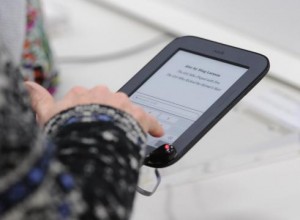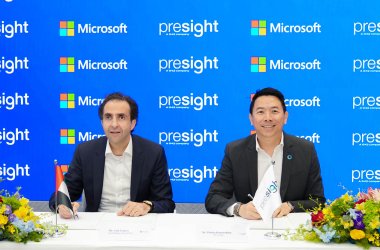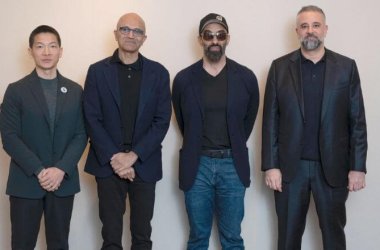 Microsoft’s new partnership with Barnes & Noble could lead to development of a Windows-based tablet or e-reader, not just a Nook e-reader application for Windows 8, some analysts believe.
Microsoft’s new partnership with Barnes & Noble could lead to development of a Windows-based tablet or e-reader, not just a Nook e-reader application for Windows 8, some analysts believe.
The companies announced yesterday that Microsoft will invest $300 million in a new Barnes & Noble subsidiary, which will include the digital Nook and College businesses of Barnes & Noble. The investment will give Microsoft a 17.6% equity stake, which values the unnamed subsidiary at $1.7 billion.
The formation of the new subsidiary and the relationship with Microsoft are important parts of Barnes & Noble’s strategy to try to capitalise on the growth of the Nook business, it said.
The operating system for such a tablet or e-reader could be Windows 8, Windows RT, or even Windows Phone 8, analysts said Monday. Both companies confirmed that a Nook application for Windows 8 is planned, but officials were vague about whether the two companies would develop a Windows e-reader or a tablet, which would likely involve a third-party tablet maker.
Whatever version of Microsoft operating system would be used, the two companies hope to mine enormous potential revenues from e-books, especially from the relatively untapped market for college e-textbooks, said Allen Weiner, an analyst at Gartner, in an interview.
Microsoft might also hope to tie in Skype videoconferencing to add a social connection for e-book readers, such as conferring on a college microbiology text, said Jack Gold, an analyst at J. Gold Associates. Microsoft’s Bing search engine would add more value to that proposition, he said.
In two years, the global market for college textbooks (primarily still in paper form) will reach more than $4 billion, offering great potential for e-textbooks, Weiner said. “That market’s pretty open, and Barnes & Noble owns 135 college textbook stores already, so they’re in an incredible position in the textbook market,” he said.
What’s more, Amazon has not shown much interest in e-textbooks, Weiner added.
The new partnership on a Windows-based tablet or e-reader device would also give a college student the ability to use Microsoft’s Office apps that aren’t available or fully usable on an iPad, Weiner added.
“I don’t think the iPad is a killer device for education users, so running Windows with productivity software and Barnes & Noble, with its really good relationships with publishers and college distribution, could be really interesting,” Weiner said.
Microsoft could even be eyeing some kind of reader device through its Nokia partnership that’s based on the Windows Phone 8 OS, also called Apollo, or a future variation of Windows Phone, Weiner said.
“I would bet that Nokia will have a tablet, and they would do well in the international market,” Weiner said, adding that Barnes & Noble would be a third partner for e-book content for a Nokia-Windows tablet.
Gold said he expects Windows 8 to power “lots of devices, including tablets … An e-book reader on such a platform, together with an integrated book marketplace [from Barnes & Noble], can help the sale of such devices, especially convertible notebook/tablet devices.”
The Microsoft-Barnes & Noble partnership stems in part from both companies’ recognising that Amazon already sells many Kindle e-readers. “Microsoft wants a piece of that action, so having the content to sell is critical, and the [sales] volumes could be huge,” Gold said.
Microsoft is also watching Apple’s deals for e-textbooks and other e-books, Gold said. “Microsoft can’t afford to sit back and ignore Apple, as each e-book on an iPad could easily lead to movement away from back-end computing on a PC or Mac desktop. Microsoft needs to protect its turf,” Gold added.
There’s even further value to Microsoft in its e-book partnership with Barnes & Noble through the Bing search engine, Gold said. “Microsoft has made a huge bet on Bing. The book market could easily be coupled to Bing for additional services, as Google is trying to do,” he said.
And if that’s not enough, Microsoft could bundle Skype calling and videoconferencing to add a social networking component to e-book readers. Microsoft acquired Skype for $8.5 billion last October. “That’s a potential new market offering,” Gold added.





